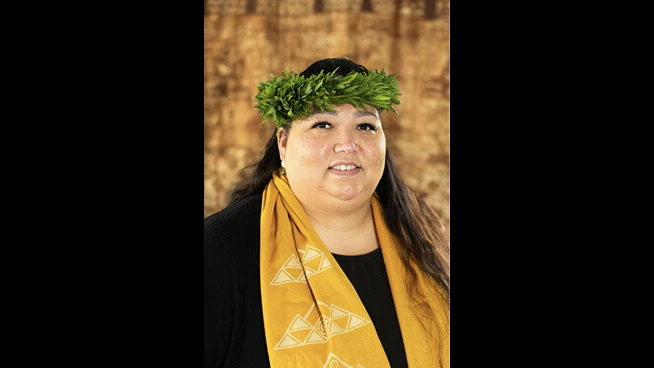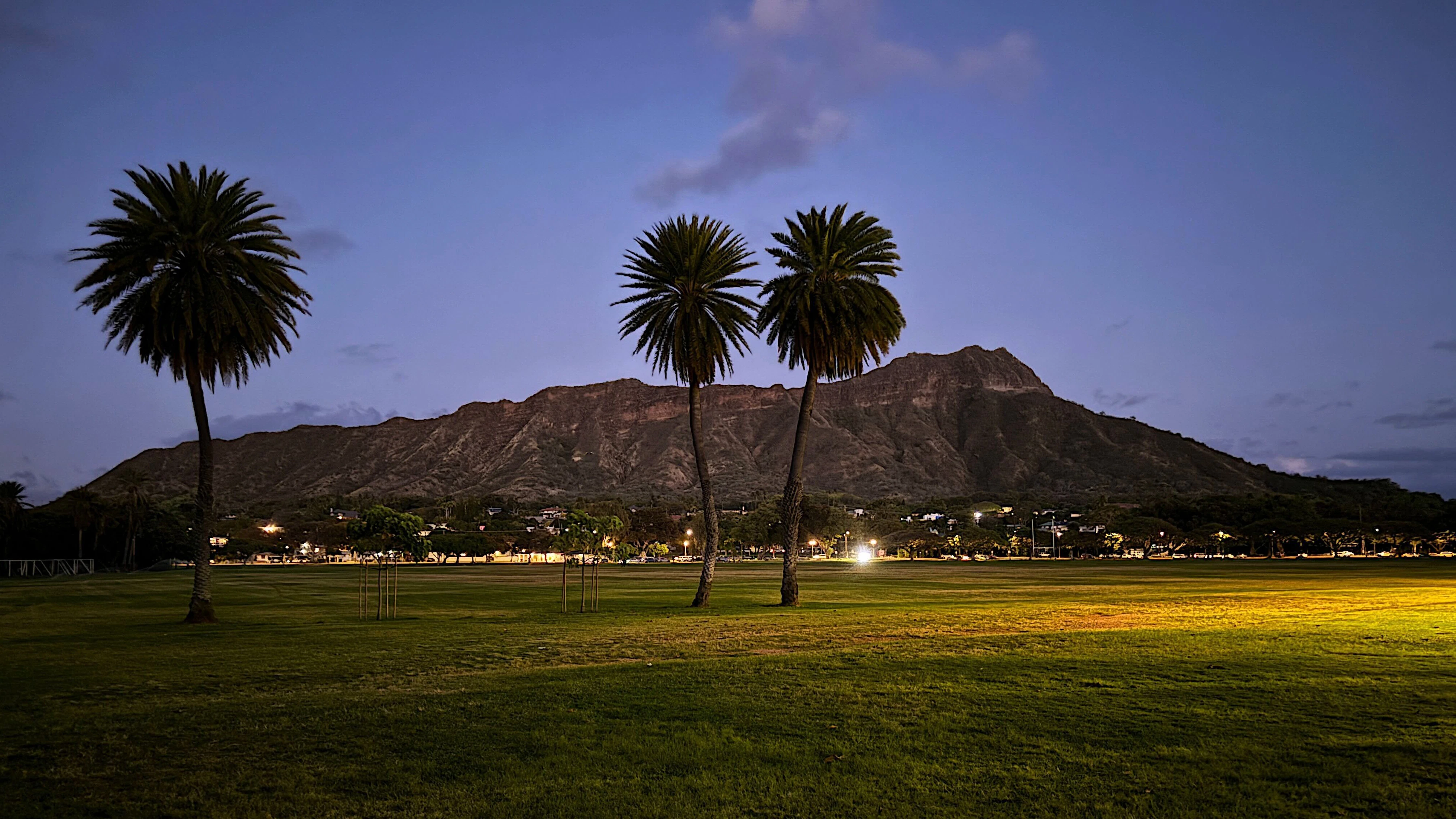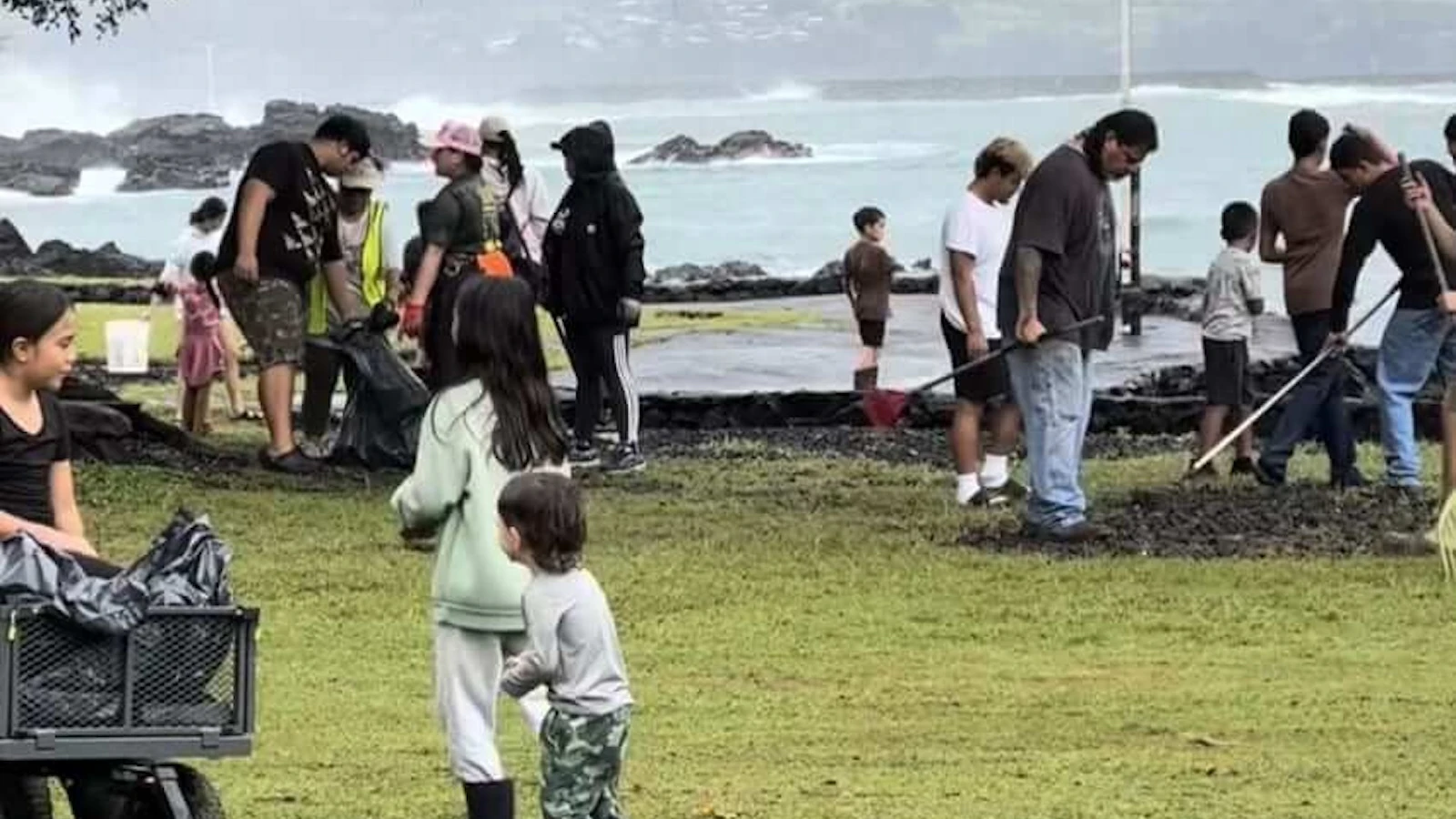When Leialoha Kaula, 42, reflects on her adolescence spent on Hawaiʻi Island, one emotion she feels is privilege. Privilege to have grown up on the ʻāina during the revival of ʻōlelo Hawaiʻi, to have learned from Kānaka Maoli advocates, and never to have questioned her own identity.
Kaula brought that solid foundation with her to the continent, first as a college student, now as a longtime resident. In the Pacific Northwest, the resident of Aloha, Oregon, is intent on building similar foundations for her haumāna as a kumu hula, and for the lāhui that makes up the Hawaiian diaspora in the region.
“Now that I live here, I also get to understand what it’s like for our families who have been displaced, who now live in that concept of diaspora,” Kaula said. “My kuleana coming to the continent was working to connect our people [with] home.”
Born in Honolulu, Kaula moved with her ʻohana to Hilo when she was in grade school. Both sides of her family claim Kānaka heritage, with Kaula’s genealogy also including Chinese, Japanese, Portuguese, German and Irish roots.
She recalls the challenges of her childhood, such as watching her mother, Cheryl, work several jobs to make ends meet.
“Growing up in Hawaiʻi, it was rough,” Kaula said. “We didn’t have very much.”
But the proximity to her Hawaiian culture served as a bright spot. Following in the footsteps of her makuahine, Kaula has danced hula since the age of 4.
Her tūtū wahine spoke fluent ʻōlelo, and Cheryl was intent on enrolling her three children in a Hawaiian immersion school. However, in fourth grade, Kaula couldn’t yet attend because she wasn’t fluent in ʻōlelo – only English.
That changed in middle school when Kaula began at Ke Kula ʻo Nāwahīokalaniʻōpuʻu. She attended the Hawaiian language immersion school until she finished as part of its third graduating class in 2001.
“Back then, you know, you only had a couple hundred people speaking Hawaiian,” Kaula said. “Today, when you go to Hawaiʻi you can hear it everywhere.”
As a high school student, she wanted to one day run a nonprofit organization. But when college approached, she pivoted.
Kaula’s makuahine encouraged her to leave Hawaiʻi and explore other places. Kaula reasoned that travel helped the aliʻi evolve, and she felt grounded in who she was as a Hawaiian, so she chose Washington State University (WSU) as her next stop.
Initially majoring in criminal justice, Kaula considered a career as a lawyer because it fulfilled her idea of success, particularly coming from a family with financial struggles. Eventually, she gravitated to psychology, thinking she would become a guidance counselor.
Kaula still felt the pull to run a nonprofit and raise funds to award scholarships to youth like herself. Scholarships had helped her attain higher education, so she understood their importance. But “it was like one of those dreams,” Kaula said. “Like, oh, maybe one day I’ll do that.”
On the continent, she was rattled by culture shock. Kaula had to adjust – from being part of a Kānaka majority to being part of a sliver of her university’s population demographics.
“I had never been put in that situation before,” she said. “I had to then defend my Hawaiian-ness.”
In 2005, Kaula moved to Oregon to join her mother who had resettled there to give Kaula’s siblings better opportunities.
Around 2008, Kaula felt the call of the ʻāina, though the potential cost of moving back was prohibitive. She especially missed hālau, with schools on the continent not feeling as traditional as those on Hawaiʻi. Kaula wanted to create that.
However, “having a hālau is scary,” she said. “You don’t just teach hula. You’re the friend, the sister, the cousin, the mom, the auntie. You’re the marriage counselor, the mediator, the officiant.”
She discussed the idea of opening a hālau with her aunty, Kumu Hula Aloha Dalire, for months, weighing its significance. In April 2009, Dalire gave her blessing for Kaula to start her hālau, Ka Lei Haliʻa O Ka Lokelani, which she opened the following September.
She began with 12 students and has since taught hundreds of haumāna over the past 16 years.
Kaula balanced it with a corporate job, classes at Portland Community College and the responsibility of her three children: Kahoku, Kamalani and Kamaehu. Her goal as a mother was to make sure her kids never questioned being Kānaka either.
Eventually, she and her mother opened Custom Fit To You, a business specializing in alterations and sewing, which allowed Kaula to leave her corporate gig.
Opening her hālau led to the establishment of Ka ʻAha Lāhui O ʻOlekona – Hawaiian Civic Club of Oregon & South West Washington in 2019. Kaula serves as its first executive director with the intention of making it a place that gives visibility to, and instills a sense of identity in, Kānaka.
The organization grew rapidly. It established a partnership with the Oregon Food Bank and obtained land to plant kalo. The club also houses the AloHā Resource & Community Center for Native Hawaiians and Pacific Islanders. Kaula said these resources are needed by the Hawaiian diaspora.
“Our people have, for far too long, felt this sense of shame, a sense of not being enough, a sense of longing,” she said. “The intentionality behind what I do is to dismantle that.”
In 2020, Kaula went back to school at Windward Community College then finished last year at University of Hawaiʻi at Mānoa. She plans to return to Hawaiʻi Island or Maui one day.
But for now, Kaula is empowering the lāhui in the Pacific Northwest. And she’s reminding Kānaka at home and on the continent: “No matter how long you’ve been away from home, it’s still home.”
This article is reprinted with permission. Written by Megan Ulu-Lani Boyanton“Faces of the Diaspora: Empowering the Diaspora in the Pacific Northwest,” Office of Hawaiian Affairs’ Ka Wai Ola newspaper, September 2025, Vol. 42 No. 9. Read more at kawaiola.news.
For the latest news of Hawai‘i, sign up here for our free Daily Edition newsletter.





